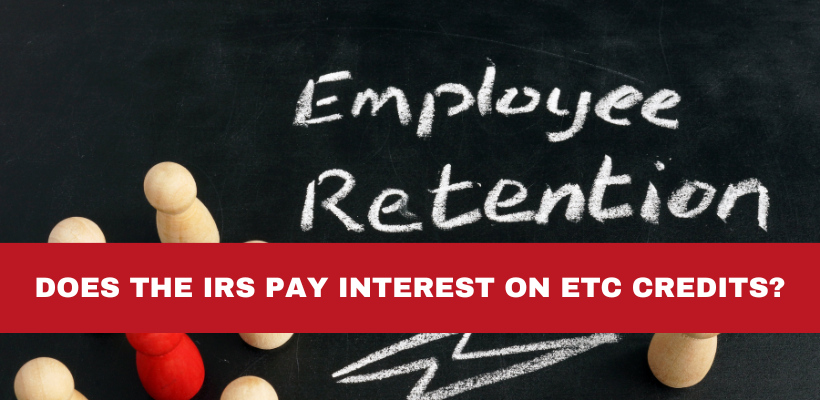If you’re a business owner who applied for the Employee Retention Tax Credit (ERTC or sometimes ETC or ERC), there’s good news on the horizon! After a long pause to investigate fraud, the IRS has resumed processing ERTC credit claims. Many businesses are now receiving confirmation that their claims have been approved.
As of September 2024, the IRS has been issuing checks to eligible businesses. However, since many of these claims were submitted over a year ago, business owners are understandably asking:
Does the IRS pay interest on delayed ETC credits?
The answer is a resounding yes!
When the IRS processes a delayed ERTC refund, they generally pay interest on the overpayment. For ETC credit claims, businesses that have been waiting over a year can expect to receive interest along with their refund.
When Does Interest Start Accruing?
Interest on ETC credits typically begins to accrue based on specific timing. For example, interest starts from the later of several events: when your tax return was due, the date your claim was received, or the date your submission was in a processable format. This means that if you filed your ETC claim months ago but it was only processed recently, interest has likely been accumulating throughout the delay.
The interest rate applied fluctuates over time according to the IRS’ established quarterly interest rates, thus, delays can lead to a larger interest payment. This can be particularly beneficial to businesses whose refunds were caught in extended processing.
How Much Interest Could You Receive?
The exact amount of interest will depend on when your claim was filed and when the refund is issued. With interest rates having risen recently, businesses may find the interest payment to be a meaningful addition to their refund, especially if the delay was significant.
What Should You Do Next?
If you’re still waiting for your ETC credit refund or haven’t received any updates, now is a good time to follow up with the IRS. The processing of claims has resumed, so eligible businesses should begin seeing their refunds and accrued interest soon.
If you’ve already received your refund but have questions about the interest payment, it’s a good idea to review your IRS notice. Make sure everything is correct, and if you feel that the interest paid was insufficient, you may have options to dispute it.







 Steven N. Klitzner, P.A. is a tax attorney based in Miami, Florida. He has been practicing tax law for over 40 years, and currently holds a 10.0 rating by Avvo. Mr. Klitzner was appointed to the IRS Service Advisory Council in 2021 and is...
Steven N. Klitzner, P.A. is a tax attorney based in Miami, Florida. He has been practicing tax law for over 40 years, and currently holds a 10.0 rating by Avvo. Mr. Klitzner was appointed to the IRS Service Advisory Council in 2021 and is... 





